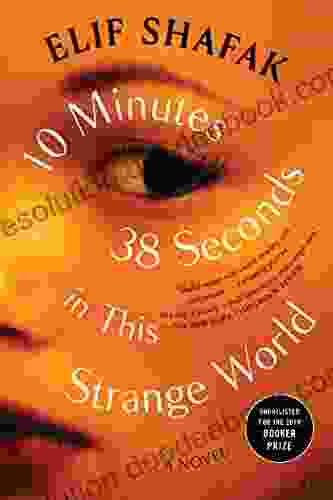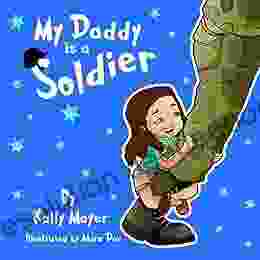How to Run a Successful Workshop for Theater Education or Business: A Comprehensive Guide

4.5 out of 5
| Language | : | English |
| File size | : | 817 KB |
| Text-to-Speech | : | Enabled |
| Enhanced typesetting | : | Enabled |
| Word Wise | : | Enabled |
| Print length | : | 212 pages |
| Screen Reader | : | Supported |
Workshops are a valuable tool for sharing knowledge, developing skills, and fostering collaboration in both theater education and business settings. Whether you're an experienced workshop facilitator or just starting out, this comprehensive guide will provide you with the essential steps to plan, organize, and conduct a successful workshop.
1. Define Your Workshop Goals and Objectives
The first step in planning a successful workshop is to clearly define your goals and objectives. What do you want participants to learn or achieve by the end of the workshop? Once you have a clear understanding of your goals, you can develop your workshop content and activities to align with them.
For example, if your goal is to train participants in a specific technical skill, such as lighting design, your workshop objectives might include:
- Participants will be able to identify and use the different types of lighting instruments
- Participants will be able to create a basic lighting plot
- Participants will be able to operate a lighting console
2. Identify Your Target Audience
Once you know what you want to achieve with your workshop, it's important to identify your target audience. Who are the people who would most benefit from attending your workshop? Consider their age, experience level, and interests. This will help you tailor your workshop content and activities to meet their specific needs.
For example, if you're running a workshop on business communication, you might target your workshop to professionals in the early stages of their careers.
3. Choose a Workshop Format
The next step is to choose a workshop format that will best meet your needs. There are many different workshop formats to choose from, including:
- Full-day workshop: This is a one-day workshop that typically runs for 6-8 hours. It's a good option for covering a large amount of material in a short amount of time.
- Half-day workshop: This is a shorter workshop that typically runs for 3-4 hours. It's a good option for covering a smaller amount of material or for providing a more in-depth look at a specific topic.
- Multi-day workshop: This is a workshop that runs for multiple days or weeks. It's a good option for covering a large amount of material in a more comprehensive way.
- Online workshop: This is a workshop that is conducted online, typically through a video conferencing platform. It's a good option for reaching participants who cannot attend an in-person workshop.
Consider your goals, objectives, and audience when choosing a workshop format.
4. Develop Your Workshop Content
Once you have chosen a workshop format, it's time to develop your workshop content. This includes:
- Workshop outline: This is a roadmap for your workshop that includes the topics you will cover, the activities you will do, and the time you will allocate to each activity.
- Workshop materials: This includes any handouts, worksheets, or other materials that participants will need.
- Workshop activities: These are the activities that participants will do during the workshop. They should be designed to be engaging, interactive, and relevant to the workshop goals.
- Assessment tools: These are the tools you will use to assess participants' learning. This could include quizzes, reflection exercises, or post-workshop surveys.
5. Promote Your Workshop
Once you have developed your workshop content, it's time to promote your workshop and attract participants. There are many different ways to promote your workshop, including:
- Social media: Use social media to promote your workshop to your target audience.
- Email marketing: Send emails to your email list about your workshop.
- Networking: Attend industry events and network with potential participants.
- Paid advertising: Use paid advertising to reach a larger audience.
6. Prepare for Your Workshop
In the weeks leading up to your workshop, it's important to prepare so that everything runs smoothly.
- Confirm your venue: Make sure you have a confirmed venue for your workshop.
- Order your materials: Order any materials you will need for the workshop, such as handouts and supplies.
- Prepare your activities: Make sure you have all of your activities prepared and ready to go.
- Practice your presentation: If you are presenting any material during the workshop, practice your presentation so that you are comfortable and confident.
7. Deliver Your Workshop
On the day of your workshop, arrive early to set up and get organized. Welcome your participants and introduce yourself. Then, follow your workshop outline and deliver your content in an engaging and interactive way.
Be sure to check in with participants throughout the workshop to make sure they are understanding the material and that they are enjoying the activities.
8. Evaluate Your Workshop
After your workshop is finished, it's important to evaluate it so that you can improve it for the future. Ask participants for feedback on the content, activities, and overall experience.
You can also use assessment tools, such as quizzes or post-workshop surveys, to assess participants' learning.
9. Tips for Inclusivity and Accessibility
When planning and delivering your workshop, it's important to be mindful of inclusivity and accessibility. Here are a few tips:
- Provide materials in multiple formats: Provide handouts and other materials in multiple formats, such as print, digital, and audio.
- Use clear and concise language: Avoid using jargon or technical terms that may be unfamiliar to some participants.
- Provide opportunities for participation: Give all participants opportunities to participate in discussions and activities.
- Be respectful of different learning styles: Use a variety of teaching methods to accommodate different learning styles.
4.5 out of 5
| Language | : | English |
| File size | : | 817 KB |
| Text-to-Speech | : | Enabled |
| Enhanced typesetting | : | Enabled |
| Word Wise | : | Enabled |
| Print length | : | 212 pages |
| Screen Reader | : | Supported |
Do you want to contribute by writing guest posts on this blog?
Please contact us and send us a resume of previous articles that you have written.
 Chapter
Chapter Story
Story Genre
Genre Library
Library Paperback
Paperback Paragraph
Paragraph Sentence
Sentence Shelf
Shelf Foreword
Foreword Preface
Preface Synopsis
Synopsis Annotation
Annotation Footnote
Footnote Scroll
Scroll Tome
Tome Classics
Classics Library card
Library card Narrative
Narrative Reference
Reference Dictionary
Dictionary Thesaurus
Thesaurus Character
Character Catalog
Catalog Card Catalog
Card Catalog Stacks
Stacks Study
Study Research
Research Lending
Lending Reserve
Reserve Academic
Academic Journals
Journals Special Collections
Special Collections Interlibrary
Interlibrary Literacy
Literacy Study Group
Study Group Storytelling
Storytelling Awards
Awards Reading List
Reading List Book Club
Book Club Theory
Theory Bhavesh Bhagat
Bhavesh Bhagat Jenny Maxima
Jenny Maxima Paul Durham
Paul Durham Matthew Hild
Matthew Hild Alba Luz Morazan
Alba Luz Morazan Mary Ann Cappiello
Mary Ann Cappiello Timothy H Edgar
Timothy H Edgar Jane Cochrane
Jane Cochrane Margot Potter
Margot Potter Scott L Hoffman
Scott L Hoffman Kristen Ashley
Kristen Ashley Susan Gal
Susan Gal Daniel Alef
Daniel Alef Gail Saunders Smith
Gail Saunders Smith Nigel Rothfels
Nigel Rothfels Rick Barot
Rick Barot Niki Smith
Niki Smith Joe Barrera
Joe Barrera Erin Hunter
Erin Hunter Michael Spitzer
Michael Spitzer
Light bulbAdvertise smarter! Our strategic ad space ensures maximum exposure. Reserve your spot today!

 Davion PowellEmbark on a Musical Journey with Music For Little Mozarts Music Workbook:...
Davion PowellEmbark on a Musical Journey with Music For Little Mozarts Music Workbook:...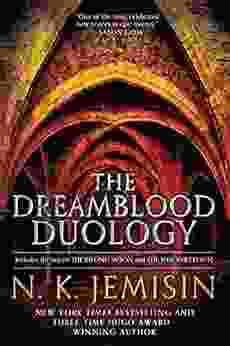
 Billy PetersonUnveiling the Dreamblood Duology: A Literary Odyssey into the Realm of NK...
Billy PetersonUnveiling the Dreamblood Duology: A Literary Odyssey into the Realm of NK...
 Octavio PazFor Anyone Who Has Ever Loved a Rescue Dog: A Heartwarming Journey of Love,...
Octavio PazFor Anyone Who Has Ever Loved a Rescue Dog: A Heartwarming Journey of Love,... Salman RushdieFollow ·9.8k
Salman RushdieFollow ·9.8k Timothy WardFollow ·11.7k
Timothy WardFollow ·11.7k Cameron ReedFollow ·8.3k
Cameron ReedFollow ·8.3k Colin FosterFollow ·17.6k
Colin FosterFollow ·17.6k Edward ReedFollow ·19.2k
Edward ReedFollow ·19.2k Peter CarterFollow ·9k
Peter CarterFollow ·9k Art MitchellFollow ·9.7k
Art MitchellFollow ·9.7k Ernest HemingwayFollow ·15.9k
Ernest HemingwayFollow ·15.9k
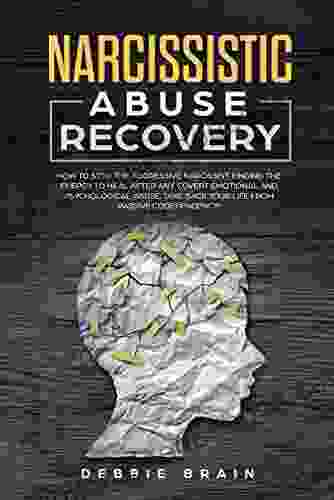
 Billy Foster
Billy FosterHow to Stop the Aggressive Narcissist: Finding the Energy...
Understanding...

 Cortez Reed
Cortez ReedThe Butcher of Hooper Creek: The Notorious Life of...
In the rugged and unforgiving Canadian...
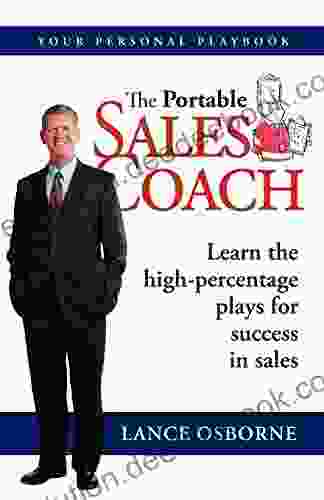
 Charles Reed
Charles ReedThe Portable Sales Coach: Your Comprehensive Guide to...
Discover the Sales Mastery...

 Jack Butler
Jack ButlerMeet Nancy Clancy, the Feisty and Fabulous Disney Junior...
In a vibrant world where...

 Francis Turner
Francis TurnerChaos Response: The Letter Harmony And Chaos
In the beginning, there was...
4.5 out of 5
| Language | : | English |
| File size | : | 817 KB |
| Text-to-Speech | : | Enabled |
| Enhanced typesetting | : | Enabled |
| Word Wise | : | Enabled |
| Print length | : | 212 pages |
| Screen Reader | : | Supported |



